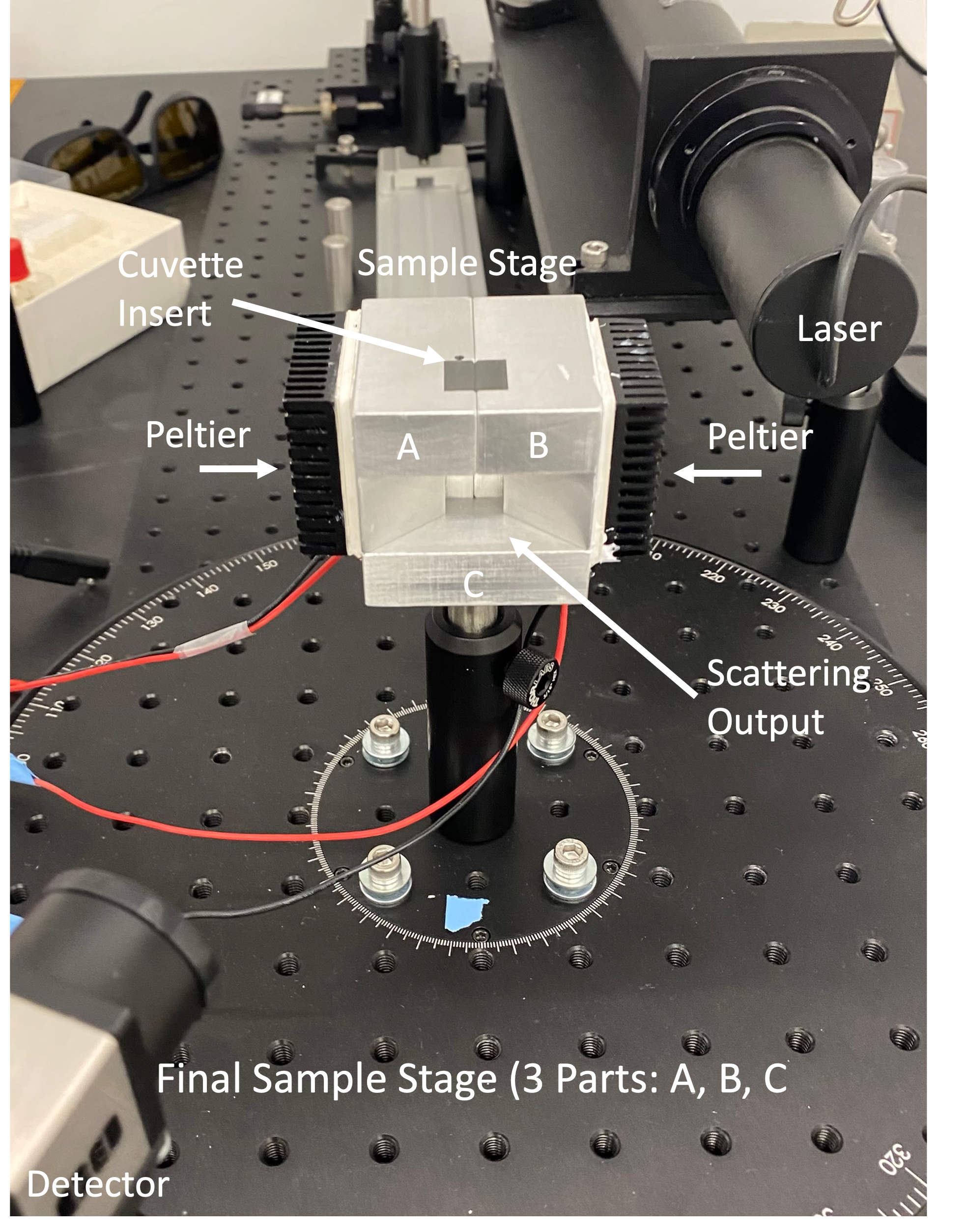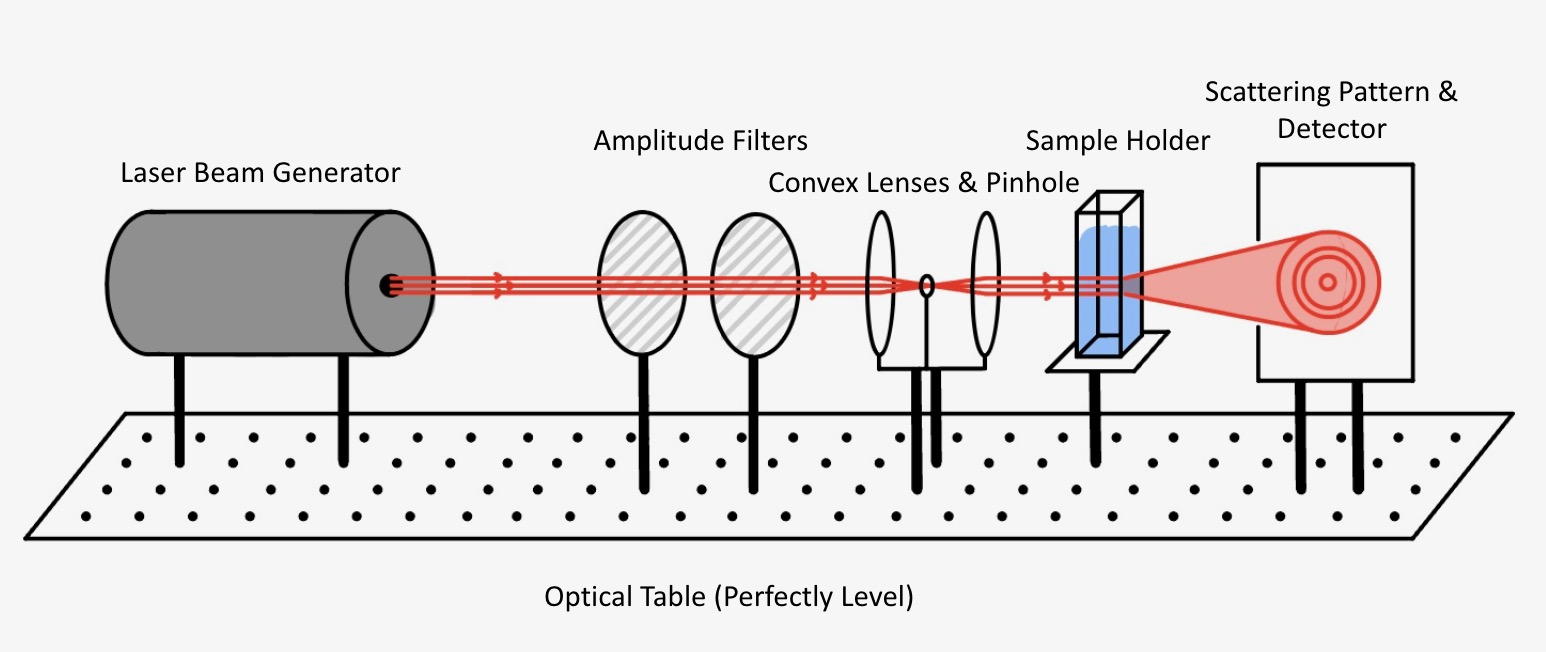

This video contains proprietary information and cannot be shared publicly at this time.
Figure 1

Figure 2

Team 01
Team Members |
Faculty Advisor |
Cristian Rodriguez |
Dr. Mu-ping Nieh Sponsor sponsor not indicated by team |
sponsored by
Sponsor Image Not Available
Designing a Temperature Controlled Device for Nanostructural Characterization
Light scattering is a technique used to measure nanoparticle size on a scale much smaller than may be viewed using a microscope. Samples scatter light differently based on their shape and size, resulting in unique ring patterns that can be analyzed to determine specimen characteristics. Imaging nanoparticles has become especially important in pharmaceutical research such as drug delivery in diseased cells. Quantification of behavior and kinetics of nanomaterials over a range of temperatures is an important aspect of material characterization. Our goal is to design a heating/cooling stage to measure a sample's light scattering under different temperature conditions while keeping scattering angles unobstructed. Without a temperature controlled device, experimental conditions are limited to ambient temperature. The proposed design is composed of a machined aluminum block that can contain a suspended liquid sample in a cuvette. The sample stage uses a Peltier thermo-electric pump to both cool and heat the particle suspension. The software controlling the stage is designed to both respond to and anticipate temperature fluctuations to keep consistent and accurate temperature control of the sample. Implementing a system to simulate environments other than room temperature allows for the study of materials more accurate to the conditions nanoparticles may be subjected to industrially.
